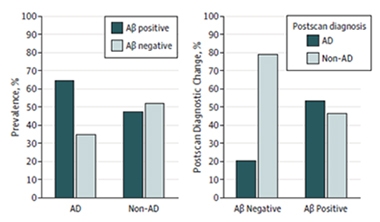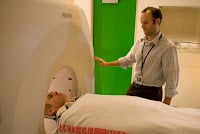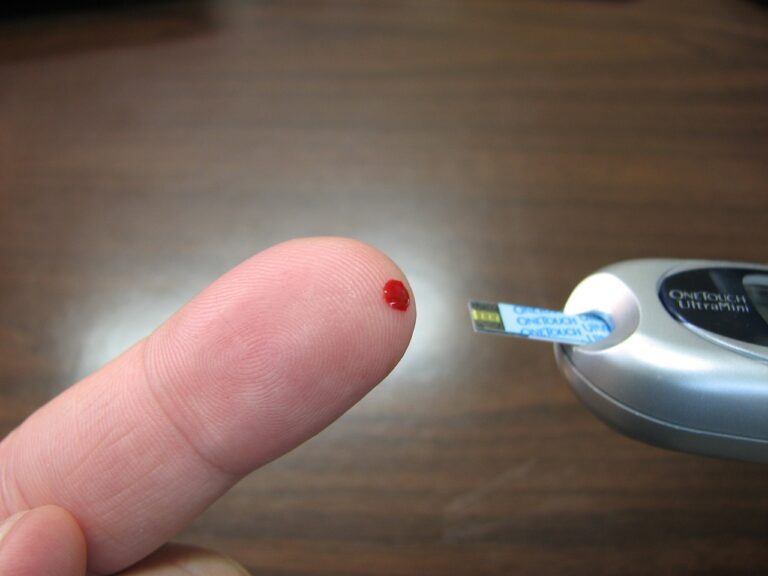F18 ALZHEIMER’S SCANS offer powerful diagnostic technology, enabling doctors to “see” Alzheimer’s plaque. At $3000 to $6000 per person, are they worth it?
F18 scans work by using PET scans with fluoride-18 tracers to spot the amyloid plaques associated with Alzheimer’s.
AlzForum, the leading forum for Alzheimer’s researchers, explains that Amyloid PET scans have moved into clinical use, but questions remain about how much the technology benefits patients. Initial studies suggest amyloid imaging can sharpen diagnosis, and now new research from Italy adds to these data.
What Difference Do F18 Scans Make?
In the journal JAMA Neurology, researchers led by Marina Boccardi at the University of Geneva reported that physicians in community clinics changed the diagnoses of about one-fourth of cognitively impaired patients based on amyloid scans. However, the physicians did not assign a diagnosis of Alzheimer’s disease to every patient who had brain amyloid, indicating they took other data into account as well. In addition, the doctors altered prescriptions in about one-third of the group after seeing scan data.
Large Study
This is one of the first large studies to examine what actually happens after amyloid scanning in clinical practice. The results jibe with previous, smaller studies, strengthening the argument that amyloid scanning does affect diagnosis and treatment. Nonetheless, these data leave unanswered the question of whether these changes improve a patient’s health and well-being enough to justify the scans’ hefty price tag.

F18-PET scans revealed that about one-third of patients diagnosed with AD were amyloid-negative, while about half of patients with other diagnoses were amyloid-positive (See chart: left). Diagnoses for nearly all the Aβ-negative patients changed to non-AD (See chart: right). Only half the non-AD Aβ-positive patients were given a new diagnosis of AD. [Chart courtesy of Boccardi et al., © 2016 American Medical Association. All rights reserved.]
Medication & Treatment
The scan data affected disease management as well. Doctors prescribed an acetylcholinesterase inhibitor or memantine to about two-thirds of the amyloid-positive patients who were not previously taking these drugs, and discontinued them for about one-third of amyloid-negative patients. The physicians also changed other medications, such as antidepressants, antipsychotics, and anxiety drugs, in about 10 percent of the cohort after scanning.
Clinical Impact
F18 scans are also referred to as “amyloid PET” or “amyloid imaging”, as patients take f18 tracers to allow PET scans to display the amyloid plaques behind Alzheimer’s.
“Although there may remain room for argument about cost, the findings of Boccardi and colleagues provide important insight into the real-world utility of amyloid PET,” Richard Caselli and Bryan Woodruff at the Mayo Clinic Arizona, Scottsdale, wrote in an accompanying editorial. Gil Rabinovici at the University of California San Francisco Memory and Aging Center agreed. “This study is encouraging in that it shows amyloid imaging has a clinical impact on diagnosis and patient management, and that clinicians are using the information in a nuanced way,” Rabinovici told Alzforum.
More details at AlzForum.com .











